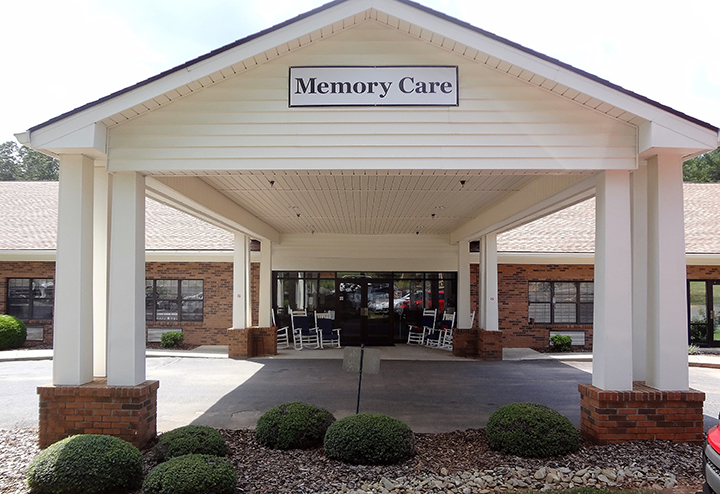High-Quality Care Plans Offered Through Alzheimers Care Charlotte Centers
High-Quality Care Plans Offered Through Alzheimers Care Charlotte Centers
Blog Article
Specialist Tips for Giving High quality Alzheimer's Treatment in the house
Caring for a specific with Alzheimer's disease in the house presents distinct difficulties that require both understanding and critical planning. Developing a structured daily routine, boosting communication skills, and creating a risk-free atmosphere are crucial components of reliable caregiving. Additionally, caregivers should not forget the relevance of seeking external assistance and resources to maintain their very own health. As we explore these specialist tips even more, it comes to be clear that a thoughtful approach can significantly influence the lifestyle for both the caretaker and the specific obtaining treatment. What specific approaches can be executed to ensure a supportive ambience?
Understand Alzheimer's Disease
Alzheimer's condition, a dynamic neurodegenerative problem, greatly affects cognitive feature and day-to-day living activities. It mainly affects memory, thinking, and habits, causing a steady decline in the abilities necessary for independent living. Early signs frequently include lapse of memory, trouble in analytic, and challenges in finishing familiar tasks. As the illness progresses, individuals may experience disorientation to time and area, damaged judgment, and modifications in mood and individuality.
The etiology of Alzheimer's is complicated, entailing the accumulation of amyloid plaques and tau tangles in the brain, which interfere with neuronal communication and bring about cell death. Danger variables include age, genes, and lifestyle selections, with most of situations taking place in individuals over 65. Recognition of these elements is crucial for caregivers, as recognizing the condition can assist in much better support and care techniques.
Additionally, Alzheimer's disease not only affects the individual however additionally has considerable psychological and logistical implications for families. Identifying the stages of the condition enables caretakers to anticipate difficulties and adapt their technique, making certain that the requirements of those impacted are met compassion and understanding. This fundamental expertise is necessary for advertising top quality care in your home.
Establish a Routine
Creating an organized day-to-day routine can considerably boost the lifestyle for people coping with Alzheimer's disease. Developing regular patterns helps to reduce complication and anxiety, giving a complacency and knowledge. A day-to-day schedule should consist of normal times for dishes, activities, and remainder, which can assist individuals expect what to anticipate throughout the day.
Integrating straightforward, acquainted tasks into the routine can advertise a feeling of success and self-reliance. Tasks like gardening, cooking, and even simple family jobs can be advantageous. It is vital to tailor these activities to the individual's capacities and passions, making certain interaction without disappointment.
Additionally, versatility within the routine is vital. While consistency is very important, enabling for adjustments based upon the person's state of mind or energy degrees can help keep a favorable environment. Motivate involvement in social communications, whether with household gos to or community activities, as these can provide stimulation and connection.
Enhance Interaction Abilities
Reliable interaction is crucial for maintaining meaningful links other with people coping with Alzheimer's illness. As cognitive abilities decline, standard discussion might end up being challenging. Consequently, caregivers need to adapt their communication approaches to cultivate understanding and connection.

Program real interest by keeping eye get in touch with and nodding to acknowledge their feelings or ideas. Instead, validate their emotions and reroute the conversation gently if needed.
Using aesthetic aids, such as photos or written pointers, can also improve comprehension. Motivate involvement in tasks that stimulate discussion, such as reminiscing about past occasions or checking out photo albums.
Produce a Safe Atmosphere
A helpful setting plays a significant function in the wellness of individuals with Alzheimer's illness. Creating a risk-free home setup is necessary to reduce dangers and improve the quality of life for both the individual and their caretakers.
Set up safety and security locks on doors and windows to stop roaming, which is an usual worry in Alzheimer's clients. Furthermore, consider making use of non-slip floor coverings in restrooms and mount grab bars for included assistance. Identifying spaces and important things can assist people browse their surroundings much more conveniently.
Emergency situation contacts need to be clearly posted near phones, and a clinical alert system can supply tranquility of mind. In general, customizing the home environment to the one-of-a-kind requirements of the individual with Alzheimer's not just article source advertises safety yet likewise encourages independence and comfort.
Look For Assistance and Resources
Accessing support and resources is critical for caregivers and people encountering the challenges of Alzheimer's disease. Caregiving can be overwhelming, both physically and psychologically, and it is necessary for caretakers to look for support to maintain their wellness and provide top quality treatment.

In addition, checking out reprieve care options can afford find out here now caretakers much-needed breaks, allowing them to reduce and reenergize exhaustion. This may consist of grown-up day programs or at home care solutions. Monetary support programs may also be readily available to assist offset the prices of care.

Conclusion
In summary, offering high quality Alzheimer's treatment in your home demands a diverse strategy. Recognizing the intricacies of the condition, establishing a structured regimen, improving interaction abilities, producing a secure setting, and seeking assistance from available sources jointly add to enhanced caregiving experiences. Applying these strategies not just fosters a sense of freedom and achievement for individuals with Alzheimer's however additionally alleviates caregiver stress, inevitably improving the top quality of life for both caregivers and those they support.
Caring for an individual with Alzheimer's disease at home presents distinct obstacles that call for both understanding and tactical planning.Furthermore, Alzheimer's condition not just influences the specific however likewise has substantial emotional and logistical implications for families.Creating a structured everyday regimen can dramatically boost the high quality of life for people living with Alzheimer's disease.Effective communication is vital for keeping purposeful connections with individuals living with Alzheimer's illness. Alzheimers Care Charlotte. Carrying out these approaches not only promotes a sense of freedom and accomplishment for people with Alzheimer's however also eases caretaker anxiety, eventually enhancing the quality of life for both caretakers and those they sustain
Report this page